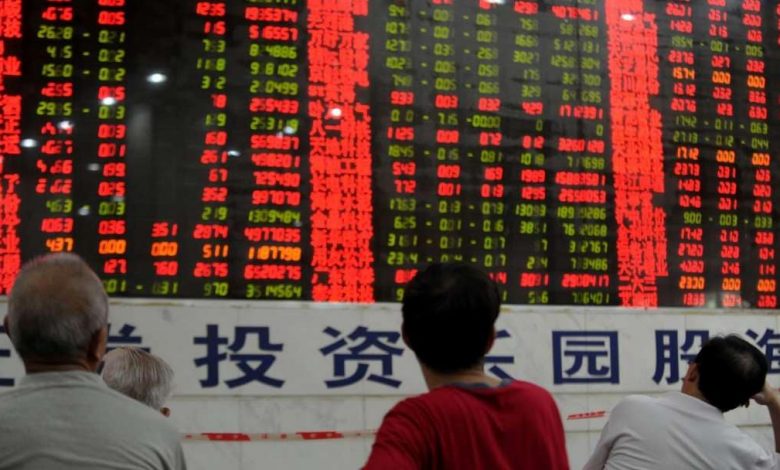
Chinese fintech walks through world exchanges.
Chinese fintech giant Ant Group intends to raise more than $ 34 billion during dual listings in Shanghai and Hong Kong. In September, the company had 731 million active users, and for 12 months ending in June 2020, the number of transactions of the payment system was $ 17.7 trillion. At the same time, the Chinese national champion of electronic payments is active in developing artificial intelligence and blockchain.
It to place 1.67 billion shares on each of the exchanges. The share price will be 68.8 yuan in Shanghai, and the volume of placement will be $ 17.23 billion. In Hong Kong, the share will cost $ 80, the importance of order – $ 17.24 billion. Trading in Hong Kong should begin on November 5, in Shanghai – later. The all-time placement will surpass the previous high set last year by Saudi Aramco ($ 29.4 billion) and the order of Alibaba ($ 25 billion). This company created the Ant Group, which was initially called Alipay, to service transactions.
Another $ 5 billion will if the underwriters fully utilize their options. Alibaba will also acquire 730 million shares to retain 33% of the votes in Ant Group. Ant Group’s capitalization will amount to $ 315 billion. Observers with complex feelings compare this value with the capitalization of JP Morgan Chase (JPM) bank, amounting to $ 304 billion, and Paypal (PYPL), equal to $ 234 billion. I would seek solace in the capitalization of VISA (V) – this is $ 417 billion. Not all of it is irretrievably lost. More precisely, the market assessed Ant Group precisely as Master Card (MA), which is just worth $ 316 billion. However, the Celestial Empire is rich not only in Ant Group.
In the shadow of this grandiose IPO, which has so far been poorly covered not only by the press but also by nimble Telegram and Youtube experts, another Chinese payment operator, Lufax, is preparing to host. And this is no less than Chinese fintech number two, according to the rating of researcher Oliver Wyman. Lufax will place 175 million depositary receipts on NYSE at prices ranging from $ 11.5 to $ 13.5. Unlike Ant Group, players won’t have to wait until November 5 – trading will begin on October 30. Lufax’s $ 3.6 billion offerings will be the largest in the US this week, far surpassing the IPOs of Root Inc. and Allegro MicroSystems, about which we have already presented detailed reviews. All three of the most significant underwriters – Goldman Sachs, Morgan Stanley, JP Morgan, and eleven other investment banks are organizing this placement.
Two ADS claims, so the share price ranges from $ 23 to $ 27. Therefore, those sources are suitable who took this into account and estimate the company’s capitalization at $ 30.5 billion. By the way, it is not much less than the $ 37 billion calculated at the online auction eBay, which is 2002-2015—owned by PayPal. Lufax is engaged in lending to small businesses and individuals. As of the end of June, the company issued loans totaling about $ 519 billion in dollar terms.
With Wall Street in mind, Rubio includes Goldman Sachs, Morgan Stanley, JPMorgan, Citigroup, Credit Suisse, and other underwriters whose social responsibility has not stood the test of China’s big IPO.
Like a Custodian Bolshevik, the gigantic Ant Group placement easily overstepped the resistance of “Little Marco” (as Trump called his rival during the Republican primaries) and his associates. Additionally, the senator will come because they will still be discussed the fintech giant in the American media for a week or even two. The point is that there are many differences between IPOs in China and the United States. In the United States, until 2012, a “quiet period” was strictly observed when analysts of underwriting banks could not publish research.
It was supposed to protect the mass investor from the gold rush. However, this method of protection showed a side effect. If analysts lowered the valuation of companies before the IPO, then, not being able to publish the valuation in the media, they nevertheless informed large clients. It turned out that the mass investor was once again making a fool. During the IPO of the social network Facebook, whose shares were costly, fell in price for several months.
Therefore, when the JOBS Act in 2012, the restrictions on publication were relaxed. However, underwriters’ analysts were in no hurry to speak, and analysts from other companies were in no hurry to run ahead of the locomotive. In China, the threat of too gambling participation in the IPO is not yet on the agenda. Analysts cover the companies going to the IPO as they want.
And including analysts of underwriters. The two-week universal buzz over the IPO of the Chinese fintech leader is guaranteed. As you know, Ali Baba, having robbed forty robbers, generously shared his treasures with his neighbors and, in general, all the urban poor. In the case of the Ant Group, the large clients of the underwriters, most likely, will not lose their treasures but rather earn. In China, “underpricing” (the difference between the closing price on the first day of trading and the offering price) is usually at le. With some IPO mechanisms, in particular, with a fixed offering price, hundreds of percent.
The wealth of Jack Ma, the founder of Alibaba, who will remain the majority shareholder of Ant Group, is sure to be the subject of lively press coverage. However, the Chinese clear fundamental base course is familiar to everyone – manufacturing and e-commerce, the symbol of Alibaba. Of the $ 4 trillion in global e-commerce turnover, 62.6% of the market Asia region.
At the same time, according to eMarketer, the Chinese online trading market is not only large – it is also growing by 27.3% per year. Moreover, the market is growing at about the same rate in the Philippines, Malaysia, and Indonesia. So investors’ hopes are well-grounded.